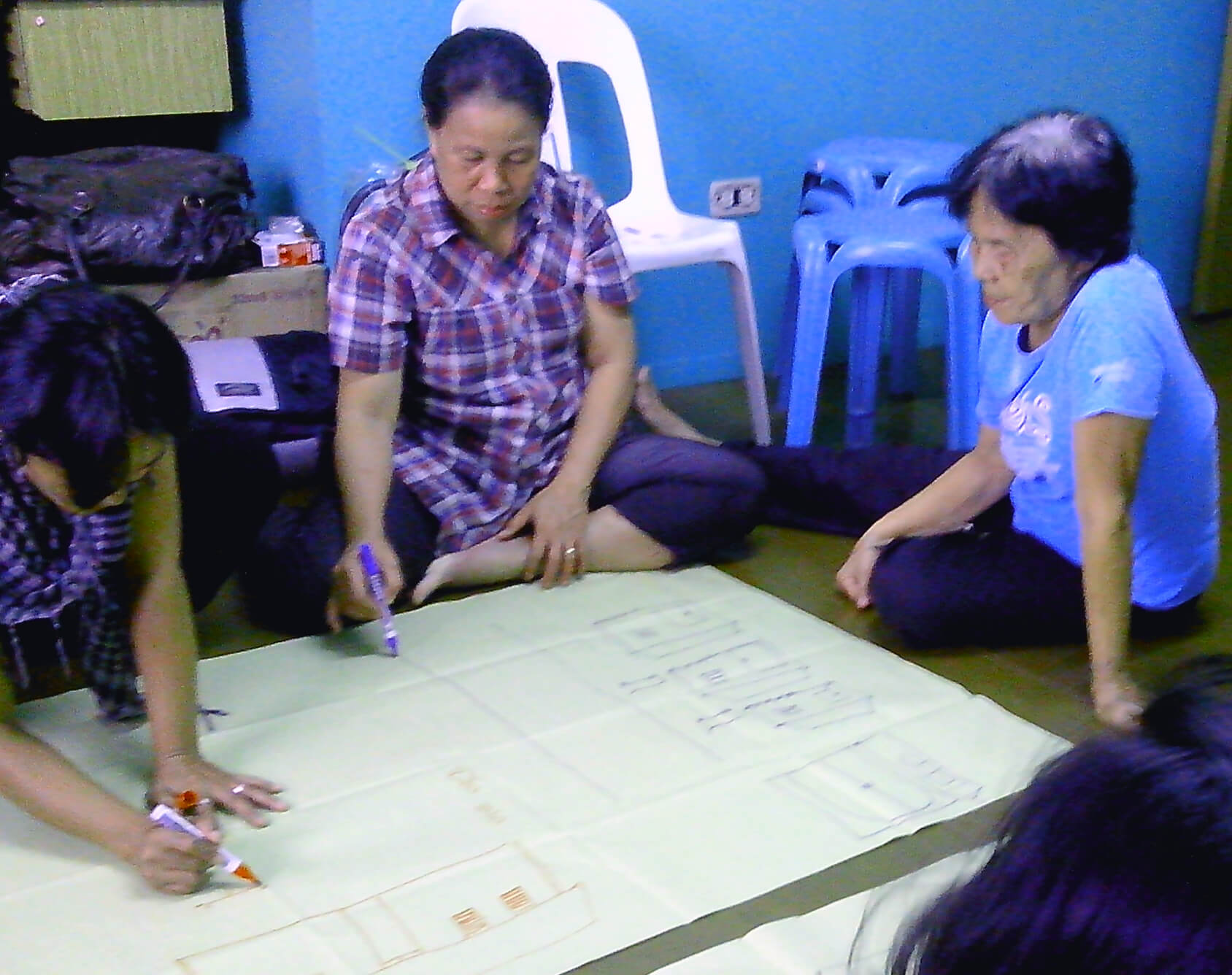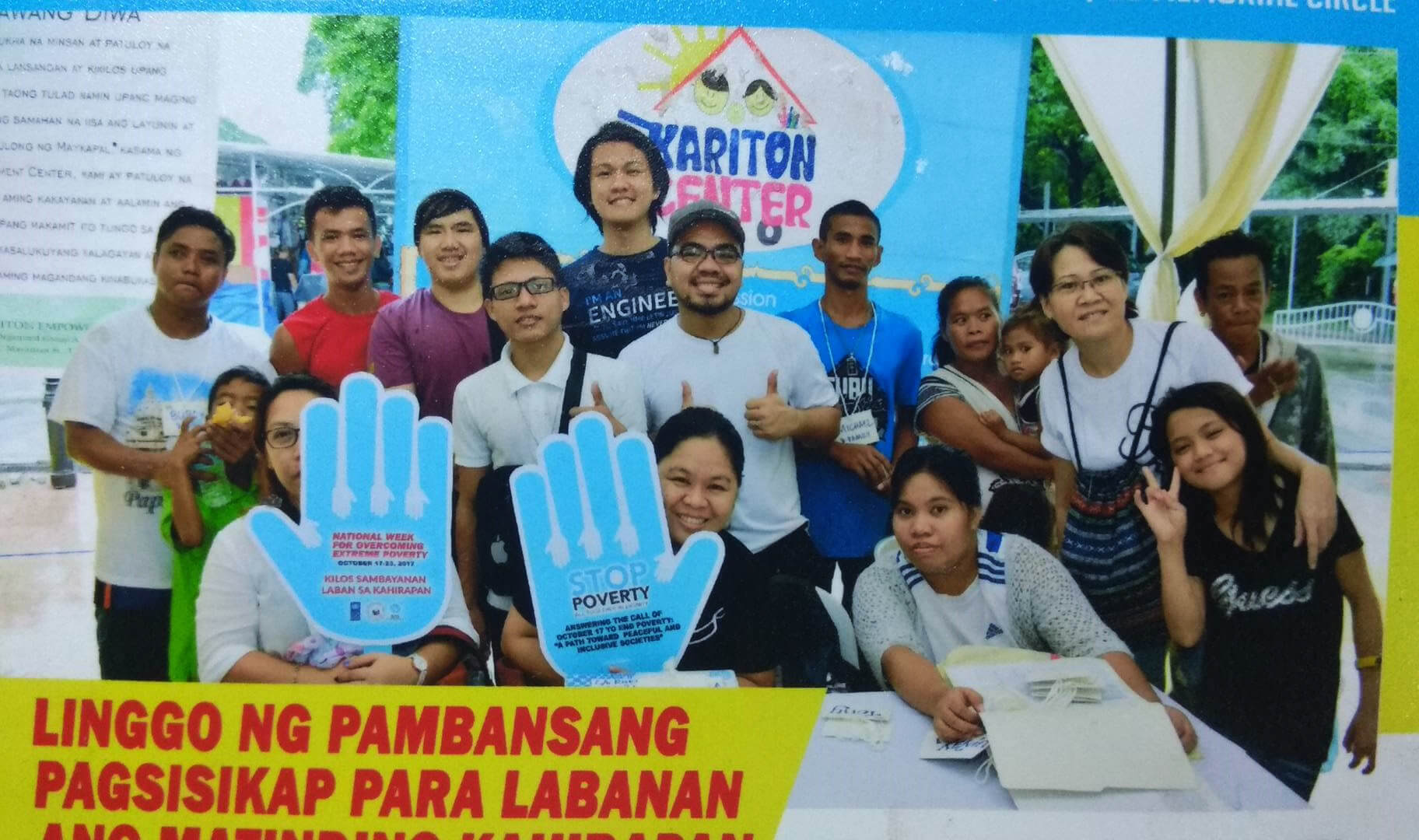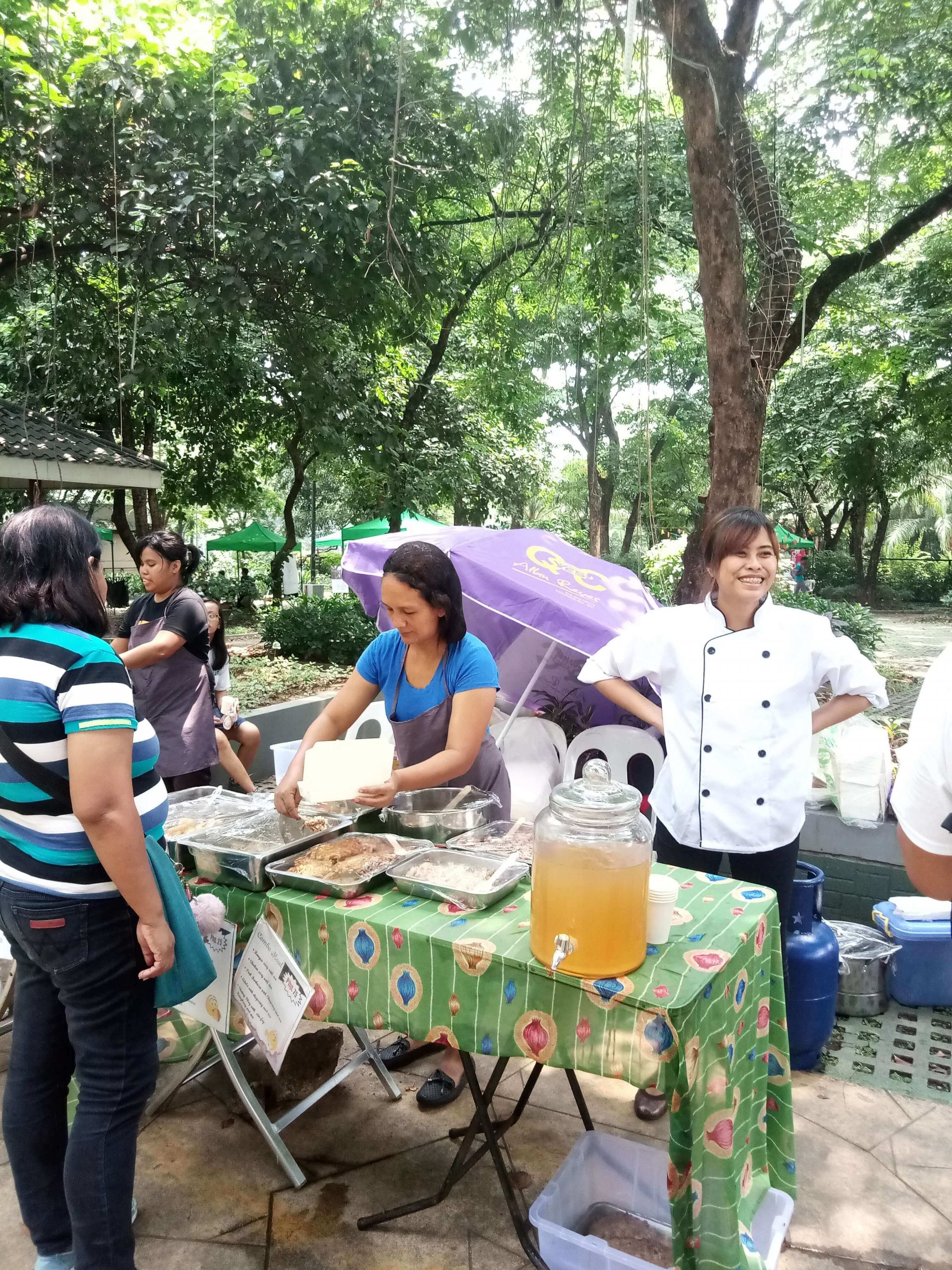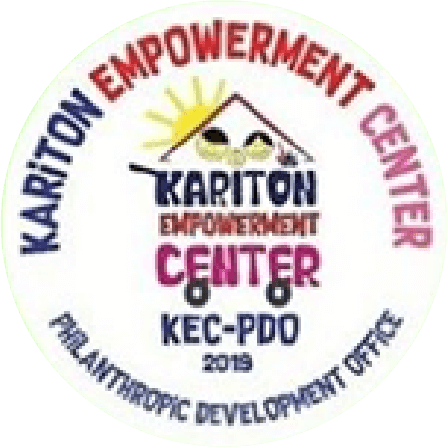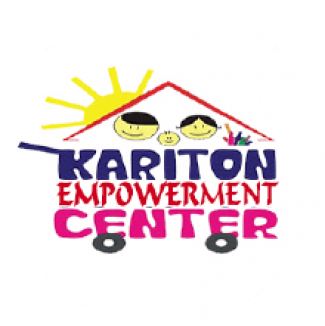Ms. Cynthia Calubaquib, who met families on her way to the Institute of Formation and Religious Studies (IFRS) where she worked as a Coordinator of Student Affairs suggested having the families staying on the street around the Institute to be the beneficiaries of the yearly outreach program of the Institute on Christmas. This IFRS outreach program of the year 2005 became her initial contact with families living on the streets. Dr. Nicole Tilman on the other hand, started to gather opinions and comments regarding the feasibility of the project by discussing the conceived project to significant persons such as different religious persons/superiors, the Dean of IFRS, friends who are and/or had been involved in related projects. She also went around searching for statistics in different agencies like IBON Foundation, Kuya Foundation, DSWD, and some religious congregations who might have some involvements with these families.
The project seemed to be convincing and possible so much so that there was one missionary sister who offered her family vacant lot for the use of the project. Cynthia and Nicole tried to explore how the property could be used. However, this offer did not materialize due to the destruction brought about by a typhoon in September 2006. The structure standing on the lot which could have been used as an office was blown down and reconstruction and fencing of the property required a very big amount which could not be afforded by the initiators.
Meanwhile the idea was also discussed with Mr. Ed Legson who had been into community organizing for a long time. His comments were very encouraging. He offered then to initially survey on his own until the project could be formally organized. The three met quarterly to update each other on the status of the project even if there was no assurance for any financial resources at hand.
The responses of those who were consulted were mostly positive and inspiring so much so that the both Cynthia and Nicole gained courage to solicit some financial assistance in a form of an allowance for somebody to initially explore and encounter these families. To their delight, the Superiors of the Congregation of the Immaculate Heart of Mary (CICM), believing in the sincerity of the proponents and the intent of the project gave an initial amount for the project to serve as an allowance for an organizer who would conduct an initial survey and research on the conditions surrounding these families. Thus, July 2007 was marked as the official launching of the project among the three. From July till August of that year Cynthia and Ed would survey targeted areas to interview and talk to street families. These same families were also invited to a medical mission conducted in a vacant lot at Natib Street, Cubao, Quezon City. A visiting doctor from Belgium rendered her service and so this medical mission became the first big activity of the center and the first encounter with many more beneficiaries. Several friends volunteered and helped out by cooking food or offering other assistance during the medical consultations. Medicines had been solicited from drug companies.
From then on Mr. Ed Legson, sustained contacts through regular visits. Eventually, he learned that somebody else belonging to a Protestant church was somehow attending to the group in the vacant lot (although not in the same holistic and empowering way Cha, Nicole and Ed had envisioned it), and so the three decided to abandon that first group so as not to intervene in their ongoing project. From there, the three decided to look for other groups and at the same time to look for a place that could serve as an office.
By November 2007, Mr. Legson spotted an apartment for rent which is proximal to the area where he encountered other street families. Contributions from friends and those who believe in the project allowed us to rent the place. At this time, Ed, who was rendering service to the project on a part-time basis, became very busy with his home based office. Ms. Sheryl Sarabia joined the project on a part-time basis too initially and eventually became a full-time staff of the project.
On December 2007 the District Superiors of the Missionaries of the Immaculate Heart of Mary, who are friends to Cynthia and Nicole, sponsored a Christmas party for the new set of street families. This was the first encounter of the new group with the newly rented center. A second medical mission also took place with volunteer doctors and nurses from the Red Cross. In January 2008 these families were invited for a meeting. An orientation on the mission-vision and intentions of the newly-born Kariton Center was given and discussed with them. Their responses were very positive. This new group now was composes of the 20-27 families the center is now serving.
In the course of our first encounters, an initial survey was conducted on their living conditions, needs and aspirations. Friends and volunteers who knew about the endeavors of the center continued to support the activities by rendering services such as tutorials, skills trainings and help during family days. Even with its limited resources the center, with the cooperation of different people and entities like for example religious communities, had, to date developed the following activities and services: a consumers cooperative, a livelihood cooperative (food processing and marketing – food cart), a junk collection assistance, education (skills trainings, values formation sessions such as group dynamics toward leadership training and community building; seminars on women issues and socio-political issues); medical services which are conducted every Saturday mornings and occasional dental services.
The activities and services held and rendered for the whole year of 2008 up to this point in time (2009) were intended to be a learning experience and process for the beneficiaries, leading them towards appreciation and owning of this community effort – a cooperative endeavor as a step towards rehabilitation and empowerment. It is also the intention of the organizers to work towards the independence of this group of street families to serve as a model chapter for other groups to follow. Furthermore, they are our future partners who will form other groups and help develop the whole project. While the project is somewhat still determined by its scarce resources, its vision is not limited by it but will hopefully develop so as to be able to assist its beneficiaries to attain the development that human beings deserve. All through these years the staff that comprises the center was driven to conduct the various activities with the motivation inspired biblically, that “even just with the crumbs of others, the lives of the beneficiaries will move on”.
Vision-Mission Statement
Kariton Empowerment Center, Inc. is a non-profit organization that aims at the rehabilitation and empowerment of street families by helping them to organize into a self-help group, and enable them to address more creatively and responsibly their situation through organizing, education, formation and skills training, conduct of livelihood programs, support services, networking and promotion of advocacy
.
Our Purposes
Our Gallery
A little bit of what we do.


